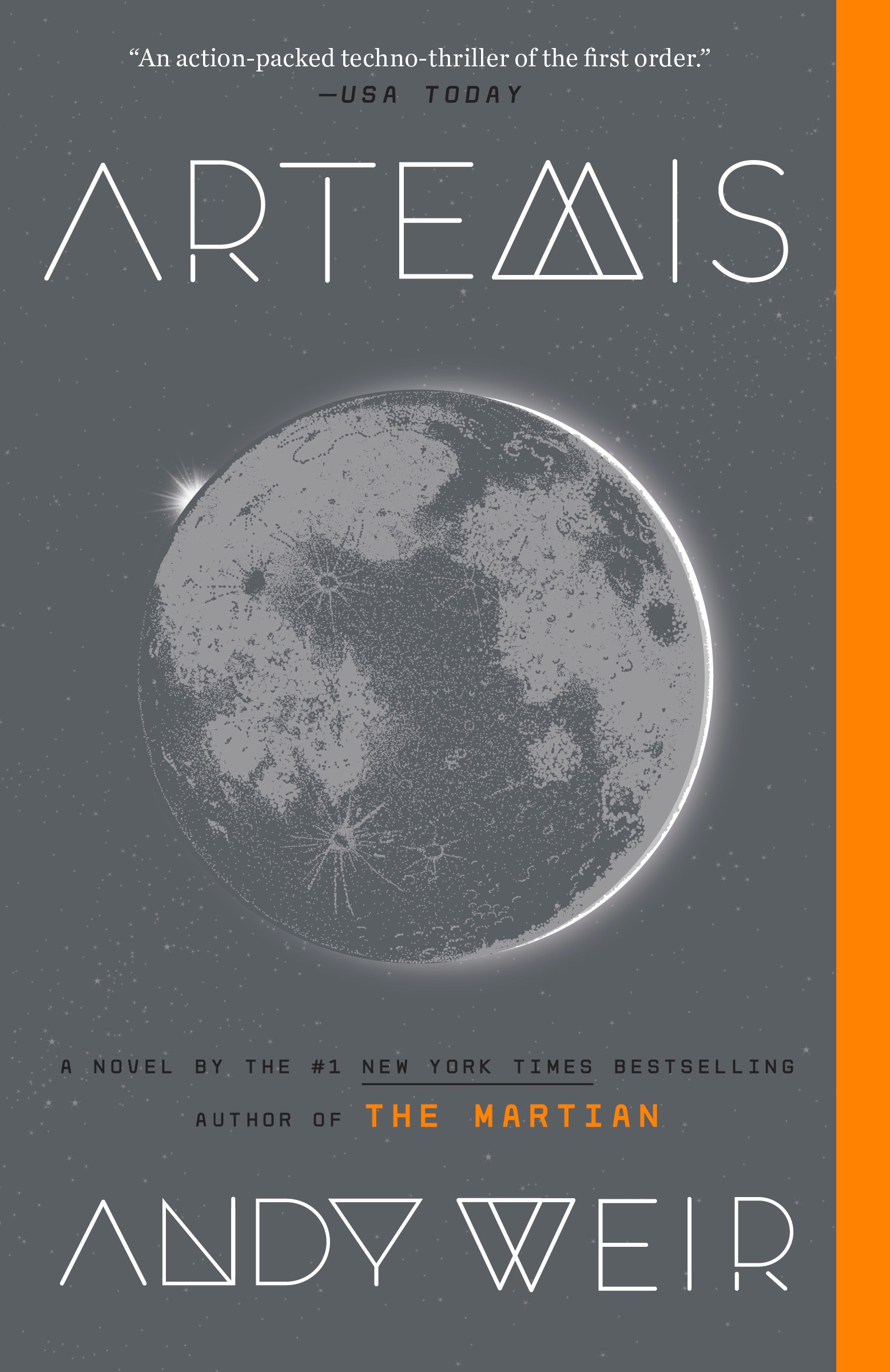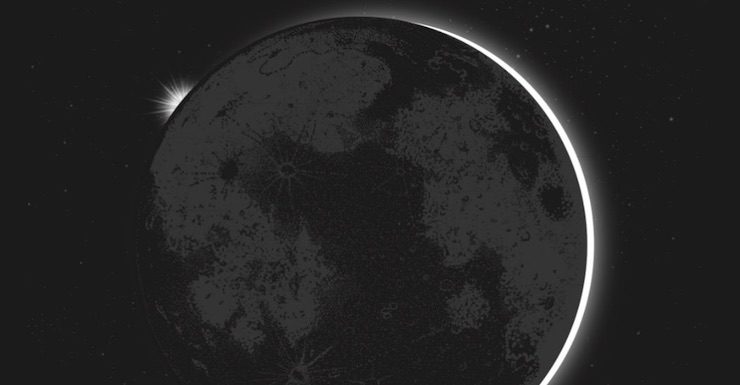In Artemis, Andy Weir leaves Mars behind to introduce us to a fantastic city on the moon, and one of its more colorful citizen: Jazz Beshara, a smalltime smuggler who spends most of the book in over her head, trying to plan and carry out a heist while investigating a conspiracy that might destroy her home. I spoke with Weir over email, and asked him some pressing questions about sci-fi classics, interstellar city planning, and his picks for the greatest astronaut films.
Buy the Book


Artemis
I always love the smart-ass character, and I loved that neither Watney (in The Martian) nor Jazz ever shut up, no matter how bad things get, and it’s clearly their senses of humor that help them in shitty situations. I’ll attempt to turn this thank you into a question: was that a conscious choice going into Artemis, that the hero would be a sarcastic woman, rather than, say, a super-serious manly man like Rudy?
I don’t think I’d call it a conscious choice. I think I’m just a smart-ass, so that’s how my main characters come off.
And to build on that, I don’t think we have nearly enough humor in genre work. Do you have any favorite books or authors you’re drawing on to write funny SF?
Well, there’s Douglas Adams, of course. He pretty much invented comedic sci-fi. I also drew a lot of inspiration from Terry Pratchett. Though I don’t write fantasy, his narrative technique is so awesome I couldn’t help but be inspired by it. And the pure smart-assery of Dave Barry was a big inspiration in my formative years.
I know you started writing quite young—what was the first book that made you want to write?
Probably Red Planet by Heinlein. That was the first time I read an entire book, start to finish, in a single day.
Do you have any particular writing rituals that you follow?
Not really. I have to be in a room by myself. I might have some instrumental music playing, but never anything with lyrics. I shoot for 1000 words per day when I’m working on a first draft.
When you begin writing, do you tend to start with an idea, a character, a voice, or something more tactile like scent or color?
I usually start with the setting. First, make the world the characters will inhabit, then make the characters. They live in that world, so I need to know about it before I understand what they’re like.
I saw a fantastic thread throughout the book in the way you value and honor work. Jazz sides with “working-class schmoes” and respects her dad for being so meticulous in his welding, Bob for being an EVA master, Svoboda for being so careful with his tech work, etc. Did you go into this consciously writing a story of working-class heroism? Or do you just tend to side with working stiffs?
I definitely do have respect for people who earn their own way. I wasn’t trying to make a point or anything. Trond Landvik is definitely not a “working schmoe”, he’s a billionaire. But he’s also a likeable guy. I guess I just like people with principles that they follow.
I loved that you also gave us the interstitial story of Kelvin via his emails with Jazz. How did you develop that aspect of the story? Did you go into the novel knowing that you were going to have this sad tale of thwarted dreams popping up throughout your heist, or did it just grow organically as you wrote?
I came up with Kelvin as a device to give snippets of Jazz’s life growing up while also not taking up too much time with that information. It was a great way for me to skip through her life. If I’d somehow put all that stuff at the beginning, it would have been a breakneck pace of narration leaving the reader very unhappy.
How long did you spend planning the layout of Artemis—and are you now qualified to be a space city planner?
I spent months designing the city. I’m not sure how good a space city planner I am, though. Bear in mind there were certain… flaws with the city design that came up during the story.
Following on that, I loved how much research you put into this sucker (I’m pretty sure I could smelt something now if I had to) and obviously The Martian is also extremely detailed. How would you say you handle the ratio of writing to research, and which is your favorite part of the process?
I spend about half my time working on the research. And that’s by far my favorite part. I love working out the science. It’s the pesky characters and storyline that’s hard work.
You’ve mentioned wanting to return to Artemis in future books. Are you currently working on a new book in the Artemis-verse? Or another project entirely?
Right this moment, I’m working on a book that is not related to Artemis. But I definitely plan to return to Artemis for sequels in the future. Readers consistently had good things to say about the setting—even readers who didn’t like the book overall. So I’m definitely on to something.
How did you decide which astronauts to name Artemis’ bubbles for?
The bubbles are named after the people who walked on the moon. And they’re named in the order they were built. Armstrong was built first, then Aldrin, then Conrad, Bean, and Shephard. Following that trend, the next bubble built would be Mitchell.
I know you’re into space history (as am I), and I also read your “By the Book” interview with The New York Times…and I am going to blatantly rip them off. If you could invite any five astronauts (living or dead) to a dinner party, who makes the cut?
- Yuri Gagarin – first human in space. Gotta say hi to him.
- Alexey Leonov – First spacewalk. His suit got too big to get back in. He almost died. They got him back in and he was dehydrated. His boots in the suit were full of sweat. Almost died from that. Then when they landed in the middle of a forest, they were on their own for many hours while wolves circled around them. Seems like he’d have some interesting stories to tell.
- John Young – my favorite astronaut.
- Alan Bean – Seems like a really cool guy from his interviews
- Harrison Schmitt – The only pure scientist who went to the moon. He fell over a lot.
Was Groundskeeper Mike actually a super-elderly Michael Collins, enjoying his retirement on the moon?
No. Mr. Collins, having been born in 1930, would be 154 years old during the events of Artemis. Not to be pessimistic, but I just don’t think he’s going to live that long.
Bang/Marry/Kill: The Right Stuff, Apollo 13, Gravity
- Bang: Gravity – good entertainment, but had a lot of science accuracy problems;
- Marry: Apollo 13 – awesome on all fronts;
- Kill: The Right Stuff – an amazing story made boring by a slow, plodding pace. Also it vilified Gus Grissom, making him look like a coward when in reality he was just the victim of a faulty switch.
What’s your pick for best SFF film adaptation of all time? What’s a sci-fi or fantasy book that you’d love to see made into a movie?
Well, since the category is science fiction AND fantasy, I have to answer Lord of the Rings. Kind of hard to think of a better fantasy book adaptation than that. As for SciFi/Fantasy adaptations – I’d love to see more Terry Pratchett novels made into films. Some have been made into made-for-TV movies, but I’d like a feature film. I think Small Gods would make an excellent standalone movie.
If you could only recommend three classic sci-fi novels to someone—who has never read SFF—what would they be?
I, Robot by Isaac Asimov; Tunnel in the Sky by Robert Heinlein; Rama by Arthur C. Clarke
I know you grew up on sci-fi, but I’m interested in what specifically appeals to you about sci-fi as a writer, that you’ve chosen to stay in this genre rather than write, say, psychological thrillers or westerns?
That’s a tough one to answer. Why does a person like one thing more than another? I guess it’s because I like speculating about the future. Space is cool. Spaceships are cool. Simple as that.
Artemis is now available in paperback from Crown/Achetype.
Leah Schnelbach would also like to marry Apollo 13. Come talk to her about steely-eyed-ness and missile men on Twitter!










